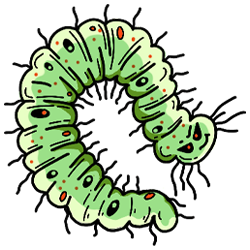38
39
40
41
42
43
44
45
46
47
48
49
50
51
52
53
54
55
56
57
58
59
60
61
62
63
64
65
66
67
68
69
70
71
72
73
74
75
76
77
78
79
80
81
82
83
84
85
86
87
88
89
90
91
92
93
94
95
96
97
98
99
100
101
102
103
104
105
106
107
108
109
110
111
112
113
114
115
116
117
118
119
120
121
122
123
124
125
126
127
128
129
130
131
132
133
134
135
136
137
138
139
140
141
142
143
144
145
146
147
148
149
150
151
152
153
154
155
156
157
158
159
160
161
162
163
164
165
166
167
168
169
170
171
172
173
174
175
176
177
178
179
180
181
182
183
184
185 | import argparse
import logging
import os
import tempfile
from ofrak_patch_maker.toolchain.llvm_12 import LLVM_12_0_1_Toolchain
import ofrak_ghidra
from ofrak import OFRAK, OFRAKContext, ResourceFilter, ResourceAttributeValueFilter
from ofrak.core import (
ProgramAttributes,
ComplexBlock,
SegmentInjectorModifierConfig,
SegmentInjectorModifier,
)
from ofrak_patch_maker.model import PatchRegionConfig
from ofrak_patch_maker.patch_maker import PatchMaker
from ofrak_patch_maker.toolchain.model import (
BinFileType,
ToolchainConfig,
CompilerOptimizationLevel,
Segment,
)
from ofrak_type.memory_permissions import MemoryPermissions
PAGE_ALIGN = 0x1000
BINARY_FILE = "./src/example_6/program_kitteh"
PRINT_KITTEH_SOURCE = "./src/example_6/print_kitteh.c"
async def main(
ofrak_context: OFRAKContext, file_path: str, print_kitteh_source: str, output_file_name: str
):
try:
root_resource = await ofrak_context.create_root_resource_from_file(file_path)
except FileNotFoundError:
raise RuntimeError(
f"Cannot find the file {file_path}. Did you run the Makefile to build it?"
)
await root_resource.unpack_recursively(do_not_unpack=(ComplexBlock,))
# The PatchMaker will need to know a bit about the target architecture
# since it will compile our C patch.
program_attributes = await root_resource.analyze(ProgramAttributes)
# ... And also more details about how to configure the build toolchain.
tc_config = ToolchainConfig(
file_format=BinFileType.ELF,
force_inlines=True,
relocatable=True,
no_std_lib=True,
no_jump_tables=True,
no_bss_section=True,
create_map_files=True,
compiler_optimization_level=CompilerOptimizationLevel.FULL,
debug_info=True,
)
# Get the complex block for `main`
main_cb = await root_resource.get_only_descendant_as_view(
v_type=ComplexBlock,
r_filter=ResourceFilter(
attribute_filters=(ResourceAttributeValueFilter(ComplexBlock.Symbol, "main"),)
),
)
print(main_cb)
# Get the complex block for `print_kitteh`
print_kitteh_function = await root_resource.get_only_descendant_as_view(
v_type=ComplexBlock,
r_filter=ResourceFilter(
attribute_filters=(ResourceAttributeValueFilter(ComplexBlock.Symbol, "print_kitteh"),)
),
)
print(print_kitteh_function)
# Initialize the PatchMaker. This is where we tell it that the `print_kitteh` in our patch will
# need to be linked to the address of the existing `print_kitteh`.
logger = logging.getLogger("ToolchainTest")
logger.setLevel("INFO")
build_dir = tempfile.mkdtemp()
toolchain = LLVM_12_0_1_Toolchain(program_attributes, tc_config)
patch_maker = PatchMaker(
toolchain=toolchain,
logger=logger,
build_dir=build_dir,
base_symbols={
"print_kitteh": print_kitteh_function.virtual_address,
},
)
# Tell the PatchMaker where our patch should go: it should overwrite `main`.
text_segment = Segment(
segment_name=".text",
vm_address=main_cb.virtual_address,
offset=0,
is_entry=False,
length=main_cb.size,
access_perms=MemoryPermissions.RX,
)
manual_map = {
print_kitteh_source: (text_segment,),
}
# Make a Batch of Objects and Metadata (BOM)
# This basically corresponds to the step of building the object files, before linking,
# but this gives us more fine-grained control if we wish to.
bom = patch_maker.make_bom(
name="kitteh",
source_list=[print_kitteh_source],
object_list=[],
header_dirs=[],
)
# Grab the resulting object paths and re-map them to the segments we chose for each source file.
segment_dict = {}
for src_file in manual_map.keys():
object_path = bom.object_map[src_file].path
segment_dict[object_path] = manual_map[src_file]
# Generate a PatchRegionConfig incorporating the previous information
p = PatchRegionConfig(bom.name + "_patch", segment_dict)
# Tell the PatchMaker where to write the final executable
exec_path = os.path.join(build_dir, "fem")
# Make the Final Executable and Metadata (FEM)
fem = patch_maker.make_fem([(bom, p)], exec_path)
# Inject the patch
await root_resource.run(SegmentInjectorModifier, SegmentInjectorModifierConfig.from_fem(fem))
await root_resource.pack()
await root_resource.flush_data_to_disk(output_file_name)
print(f"Done! Output file written to {output_file_name}")
if __name__ == "__main__":
parser = argparse.ArgumentParser()
parser.add_argument("--hello-world-file", default=BINARY_FILE)
parser.add_argument("--print-kitteh-source", default=PRINT_KITTEH_SOURCE)
parser.add_argument("--output-file-name", default="./example_6_kitteh")
args = parser.parse_args()
ofrak = OFRAK()
ofrak.discover(ofrak_ghidra)
ofrak.run(main, args.hello_world_file, args.print_kitteh_source, args.output_file_name)
|
